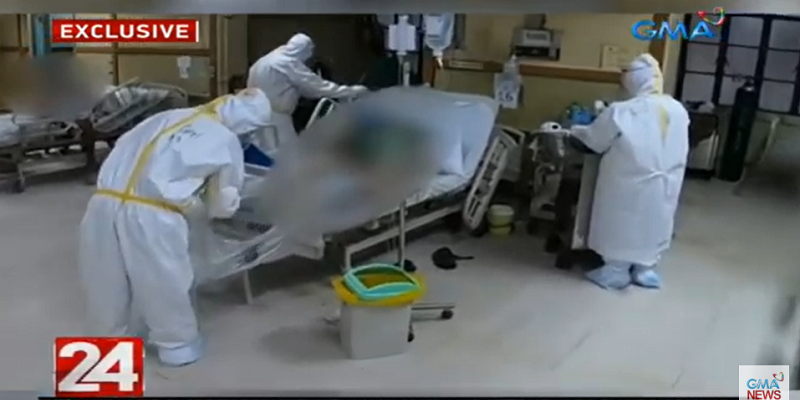COVID-19 an eye-opener on weakness of Philippine healthcare system —Duque

Health Secretary Francisco Duque III admitted that the coronavirus disease 2019 (COVID-19) pandemic has exposed the country’s frail healthcare system.
“COVID-19 pandemic is an eye-opener sa kahinaan ng sistemang pangkalusugan ng Pilipinas,” Duque said during the the ceremonial launching of “Mask Para sa Masa” initiative in Quezon City on Saturday.
“When the virus entered the country, we were struggling... Nahihirapan tayong rumesponde,” he said.
On the bright side, the Health chief noted that the pandemic has forced the government and the healthcare sector to improve.
“Ano ang mabuting idinulot po nito? From one laboratory, RITM (Research Institute for Tropical Medicine), just one for over the longest time, for several decades we only have one... initially it couldn’t even diagnose COVID-19 patient or detect cases. We have to send to Victoria in Australia,” Duque said.
“Today, we have 108 laboratories,” he emphasized.
Likewise, the Cabinet official noted that isolation facilities have also increased.
“Ang atin pong isolation and quarantine facilities mabibilang mo sa daliri ng inyong mga kamay. Iilan-ilan lang [pero] ngayon we have 150,000 temporary treatment and monitoring facility beds in over 10,000 facilities all over the country... Dati ano lima, pito,” he said.
“That is why we are extremely proud of the progress we have made in this time of the COVID pandemic,” Duque said.
“Ito pong COVID puwede nating intindihin parang litmus test of how well we can deliver on the mandate and provisions of Universal Healthcare. Truly it has become na eye-opener," he added.
On Friday, the Department of Health reported it has recorded a total of 209,544 confirmed COVID-19 cases so far. Of this number, 134,474 have already recovered, while 3,325 have died.
Most of the new cases reported came from the National Capital Region with 2,097.
This was followed by Laguna with 178, Cavite with 138, Batangas with 132, and Cebu with 125.
The number of COVID-19 cases in the Philippine may rise to up to 375,000 by the end of September, according to the newest projection made by the UP-OCTA Research Team. —KG, GMA News



